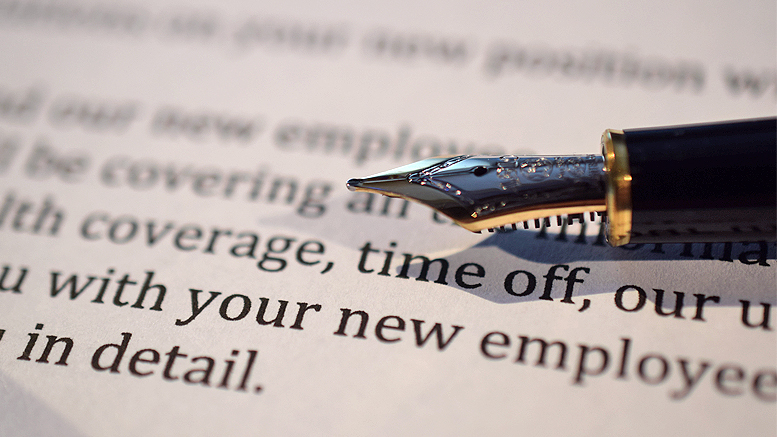By: Dorothy Douglass, SPHR, SHRM-SCP—
I’ve shared with you a little about job-hunting and about acing an interview. Let’s chat about what to do once you’ve gotten the job.
Below are some “pet peeves” that hiring managers might call HR about, or might push them to consider whether they made a good hiring decision, or even if they should let a new hire go.
Do not ignore emails, voice mails or snail mail from your new employer that might contain specific information for your first day, or even paperwork you could do ahead of your first day. Also known as – do not come in unprepared on Day One.
WHAT TO DO: Make sure you have a good handle on Day One plan – where you go; where you park; who you are meeting with, what time you should be there. If you don’t get that info, call the HR person or the hiring manager – ahead of Day 1 – and confirm the details. Oh, and bring that paperwork, a pen and dress appropriately.
Don’t come in late on your first day. ‘Nuff said.
CAVEAT: Emergencies do happen. Be honest and up front and communicate as soon as you can in the event of an emergency. But trust me, oversleeping, then making up an ‘emergency’ and showing up later will never, ever work. And it could get you fired.
Do not come in to work your first day or even your first week, and request time off.
WHAT TO DO: Begin to get an idea of the company culture and your supervisor’s work expectations. If you get an Employee Handbook, skim through it to learn about your paid time off. Have a plan in place in the event a family member gets sick.
Do not come in to work on your first day and let your manager or team know you cannot meet the work hours specifically discussed in the interview. If working hours were communicated to be M-F, from 10a-2p, and every other Saturday, and you agreed to this, plan on working those hours. While it’s great that you were just asked to be the Team Mom/Dad for your child’s sports team and that involves tournaments every weekend, you agreed to work hours that involve Saturdays. Uphold your word.
WHAT TO DO: If this happens, contact the manager who hired you, or HR, ahead of your first day and tell them. You have priorities in life. If this is one, it will pay to be honest up front. The manager may be upset, but should give you a checkmark in the integrity category. You may risk not having a job, but better to be honest up front.
After having “wow’ed” in the interview with your specific technology-savvy examples, do not come in and underwhelm with your lack of commitment to learning new computer programs.
WHAT TO DO: Dig in, ask questions, ask for help. Practice. Learn. Part of why you were hired has to do with your ability to adapt, show initiative, and learn new things.
Now for some thoughts on things you should do when you start a new job.
- Be on time. (See above on “being prepared for Day One.”) Along with that, eat a light meal and have your morning beverage (non-alcoholic, of course) before you get to work. It can be rather embarrassing to have that stomach growling piteously at 10am in a room full of new hires/trainees.
- Be enthusiastic. Get enough sleep before you start, and come in with energy and enthusiasm. You may get walked around your new company and introduced around. Be engaged. Smile, listen and learn names. These people may be your strongest allies at work. Make a good first impression – remember the firm handshake from the interview stage?
- Listen. A lot. it will pay to listen and learn about the company culture.
- Ask questions. No question is dumb. As the “new kid on the block” at the office, you should get some grace for a little while. I once sat in an office on my first day for a few hours before finding someone to ask what I should be doing. Yep, my new boss wasn’t there and left no instructions. On anything. Don’t be me – if something has happened on your first day that leaves you wondering, seek out someone and ask questions. And know that as your manager, I’ll do my best to not be that.
- Leave any talk about politics or religion at home. These are polarizing subjects and are best left away from the office. Maintain a positive and neutral attitude.
- You may work for a company that sends you through a formal orientation on Day One. Your head will fill with lots of information, then it may spin. Keep breathing. Take a few notes. Alternatively, you may be thrust into the thick of things. Through it all, remember to breathe.
- At the end of Day One, go home and relax. Think about how your first day went. Think about what questions you have to ask tomorrow. Get some rest, and get ready for Day Two, then repeat these “should do” bullet points….
Good luck, you’ve got this!
Dorothy Douglass, SPHR, SHRM-SCP is Vice President, Human Resources with MutualBank and is a Muncie Journal contributing editor on Human Resources topics and trends. MutualBank is a founding partner of the Muncie Journal project.





